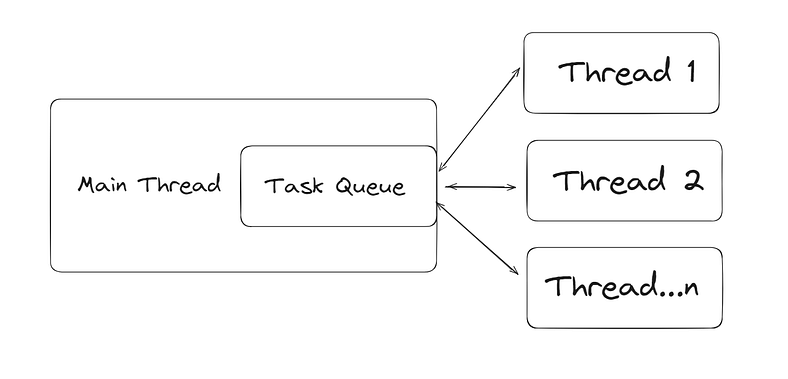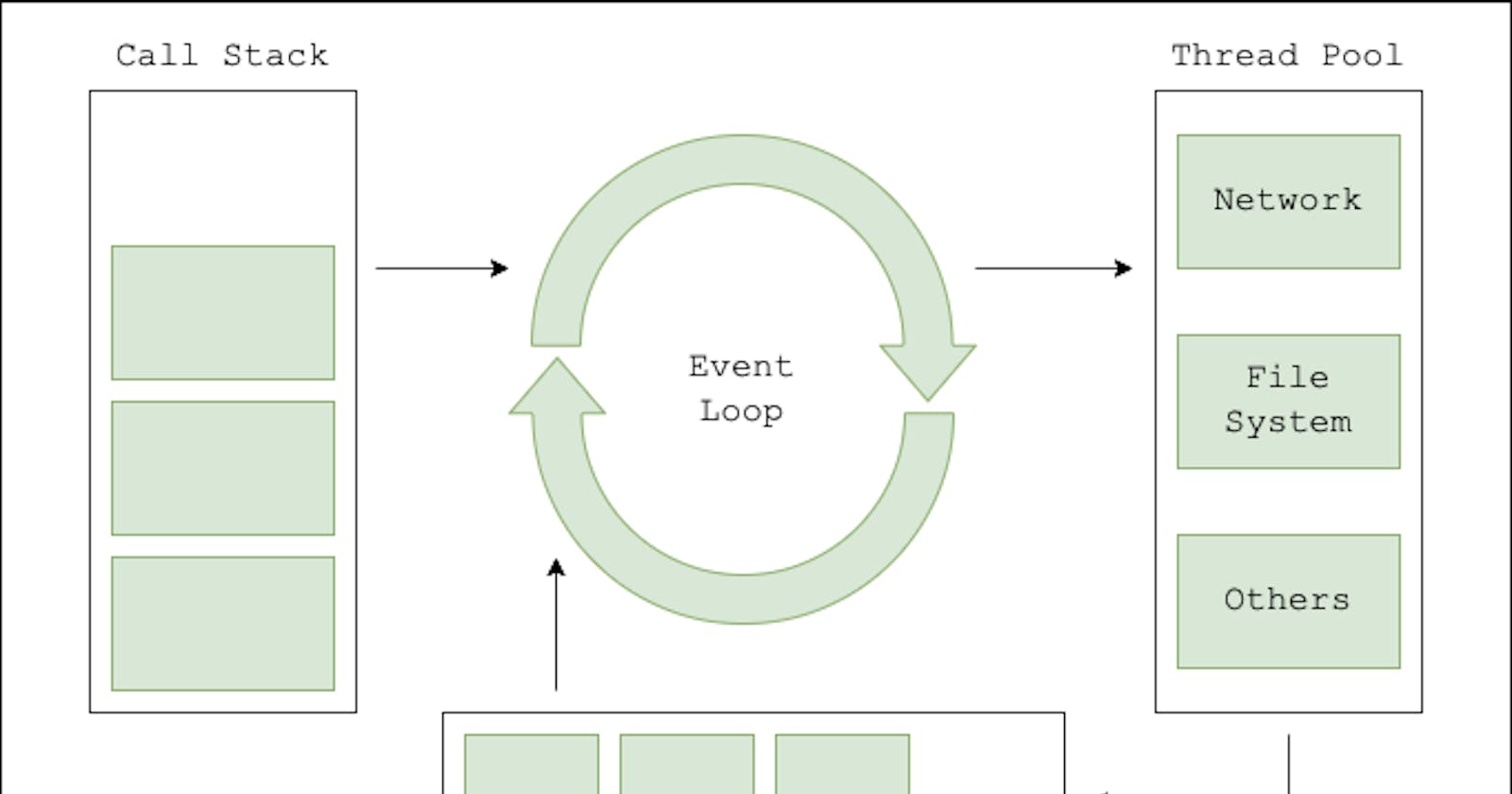Introduction
Node.js has built a reputation for its speed and efficiency in handling web requests. However, if you’ve worked with Node.js you know that its core execution operates on a single thread. This means it generally handles one task at a time. So, what happens when you have tasks that take a lot of time to compute, like image processing or complex math? That’s where the ‘worker threads’ module comes to the rescue.

Understanding Single-Threaded Node.js
The Event Loop: Node.js uses the famous event loop, a super-efficient manager. Think of it like a tireless receptionist. The event loop constantly checks if any tasks are waiting. If there are, it grabs one and starts processing it.
Non-Blocking I/O: When Node.js needs to do things that take time (like reading a file or making a network call), it cleverly offloads these tasks to the operating system. Then, it moves on to other tasks. When the operating system finishes, it sends a message back to the event loop saying, “Hey, I’m done!” The event loop then picks up the completed task.
This approach is excellent for most web applications, but what if you need raw processing power?

Enter Worker Threads
Worker threads allow you to create additional threads of execution within your Node.js process. It’s like adding extra workers to your team! These threads can handle CPU-heavy tasks in parallel with your main Node.js thread.
Key Advantages of Worker Threads
Improved Performance: Break up long calculations or data manipulation into smaller jobs that can run simultaneously.
Offloading Intensive Tasks: Don’t let heavy processing clog up your main thread’s ability to respond to web requests. Shift the workload to worker threads.
Shared Memory: Worker threads can share data with the main thread for fast and easy communication.
Example: Let’s Calculate Some Primes
Let’s say we want to find a bunch of prime numbers:
JavaScript
// main.js
const { Worker } = require('worker_threads');
function findPrimes(start, range) {
let primes = [];
for (let i = start; i < start + range; i++) {
if (isPrime(i)) primes.push(i);
}
return primes;
}
const worker = new Worker('./worker.js');
worker.on('message', (result) => {
console.log(result);
});
worker.postMessage({ start: 1000000, range: 2000000 });
JavaScript
// worker.js
const { parentPort, workerData } = require('worker_threads');
const primes = findPrimes(workerData.start, workerData.range);
parentPort.postMessage(primes);
Explanation
main.js: Creates a worker thread, sends it a task to find prime numbers, and waits for results.
worker.js: Calculates prime numbers, and sends them back to the main thread.
Notice we don’t use typical Node.js modules like http or fs inside a worker thread, but they're fantastic for heavy calculations!
When Should You Use Worker Threads?
CPU-Intensive Tasks: Think complex math, data analysis, compression, or image/video processing.
Avoiding Main Thread Blocking: Keep your main thread free to handle incoming web requests.
Let me know if you’d like more advanced use cases or deeper explanations. I’m happy to tailor the article further for your blog!

